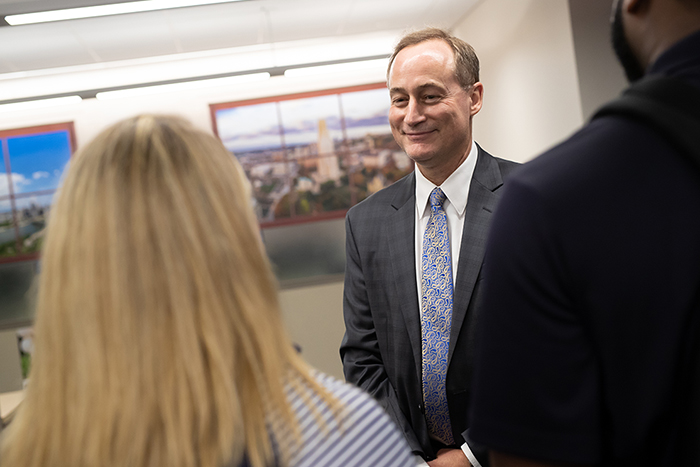
Three Years In, the University of Pittsburgh is Still a Fan of ScholarNet
In spring 2015, the University of Pittsburgh started using ScholarNet® to certify and disburse private education loans electronically. A year later, Dr. Randy McCready, Executive Director of Financial Aid at the University of Pittsburgh, estimated the immediate impact of changes to PeopleSoft functionality and integration with ScholarNet was a nearly 60 percent time savings to process a private loan. “The long-term processing time savings far outweighs our previous manual processes of scanning the loan application into our imaging system, annotating the imaged documents, applying the generic awards, and getting linked up to the correct loan and lender,” he said after one season using the solution.
Support for the Change
Randy notes that it was crucial to make the transition as seamless as possible for their multi-campus university, which uses one Office of Postsecondary Education Identifier (OPEID) and Free Application for Federal Student Aid (FAFSA) code for all five campuses. There was concern that loan applications would not be identified for, and appropriately reported to, the correct campus, or that reports would not contain the necessary data elements. His ScholarNet rep worked with Randy and individuals at the five campuses, lenders, and ScholarNet’s Care Team to navigate the transition.
“ScholarNet is an excellent organization. They work with a school to get nuances unique to that school worked out.”
In the past three years, Randy says the university has continued to refine its approach to processing private loans—although tweaks haven’t really been needed. “Any kinks we needed to work out to send the correct information to each of our five campuses were pretty quickly resolved at the beginning of that first processing year,” he notes.
Avoiding Backlogs
Today, the financial side of the house appreciates the “easy-in, easy-out transfer of funds,” says Randy, and very few paper checks even come in now. At the time of this conversation in the hectic mid-August processing season, Randy notes that between 100 and 200 loans a day are coming in to the school.
In 2017-2018, the University of Pittsburgh processed about $57.5 million in private student loans for its students. Prior to using ScholarNet, this time of year could find the school with a backlog of hundreds of loans—and sometimes a processing delay of up to a month. He says “it wasn’t unheard of to hit September and have 1,000 loans still in process.” With ScholarNet streamlining disbursement, loans can be processed—even at the height of peak processing—within four to seven days of when they’re received.
Meeting Expectations
“In 2018, the expectation of families and students is that technology will be used to do business transactions. For a contemporary financial aid office, a school should do whatever they can to use their system to get data flowing because,” as he says, “even a few days for turnaround time is too slow for the customer.”
If those customer expectations seem high, Randy adds that they definitely aren’t too high for ScholarNet. As he notes, “Anything less than a highly successful implementation to ScholarNet for the University of Pittsburgh was not considered successful to the team. It’s just the way ScholarNet works. They want to make sure the customer—from the school down to the individual student—is dealt with with the greatest care and the best service.”
Best Benefits
Randy credits ScholarNet with providing easier file transmission, greater reporting functionality, and streamlined loan processing and disbursement. Email notifications let the staff know when there’s a task to be completed, and errors are flagged before they’re submitted. The end result? Faster loan awarding and better, more efficient student service.
Interested in learning more about streamlining private loans at your school? Contact your ScholarNet representative to discuss your needs. If you have a story to share about how you’re using ScholarNet or FastChoice to simplify private loan processing, email us.
